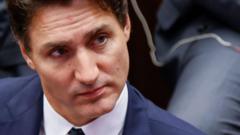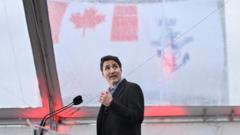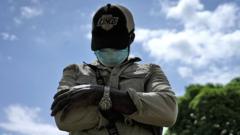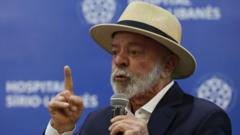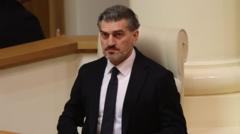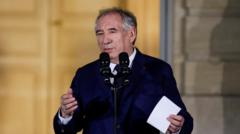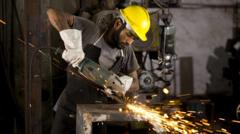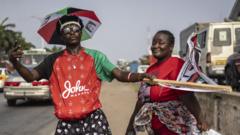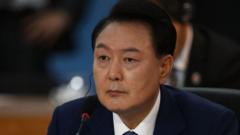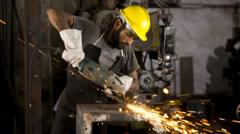As Ghanaians go to the polls today, the upcoming presidential election centers on deepening economic crises, throwing a spotlight on the candidates' responses to national hardships.
Ghana Faces Pivotal Election with Economic Challenges Looming
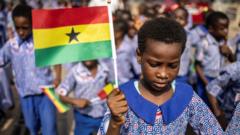
Ghana Faces Pivotal Election with Economic Challenges Looming
Election day heralds a significant political shift in Ghana as voters respond to pressing economic issues.
Ghana has officially entered election day, leading to a new chapter in its political landscape as incumbent President Nana Akufo-Addo exits office after completing his two-term limit. The elections take place against a backdrop of significant economic stress, characterized by a debt crisis and soaring costs of living, which remain at the forefront of voters’ considerations.
The contest for presidency sees two main contenders emerging: former president John Mahama of the opposition National Democratic Congress (NDC) is seeking a comeback, while Vice-President Mahamudu Bawumia of the ruling New Patriotic Party (NPP) aims to secure his position amid criticisms of the current government's performance. Should Bawumia win, he will make history as the first Muslim leader of Ghana.
In a diverse field, other notable candidates include Nana Kwame Bediako, a businessman appealing to the youth demographic, and Alan Kyerematen, who previously defected from the NPP. Despite efforts to enhance female representation in politics, only one candidate, Nana Akosua Sarpong Frimpomaa of the Convention People's Party (CPP), is up for presidency, following the unfortunate passing of another female candidate, Akua Donkor.
Approximately 19 million Ghanaians are registered to participate in this electoral process. Notably, this election involves filling 275 parliamentary seats, signifying broader national engagement in governance. Since the 1992 return to multi-party politics, only the NDC and NPP have claimed the presidency, with no party managing more than two consecutive terms historically.
Ghanaians will have a ten-hour window, from 07:00 to 17:00 GMT, to cast their votes, while land borders will remain closed until the evening following the election. The results are anticipated to be disclosed within a three-day timeframe. To win outright in the first round, a candidate must secure over 50% of the vote; otherwise, a runoff will occur at the end of December between the top two candidates.
At the conclusion of political campaigns, Bawumia expressed confidence in his party's performance compared to Mahama's administration during a period that culminated in significant inflation, peaking at 54.1% in 2022, although currently showing signs of reduction. Concurrently, Mahama emphasized the need for a transformative agenda, urging voters to select a vision of opportunity and equity.
Overall, the Ghanaian electorate grapples with challenging economic realities, including rising unemployment and poverty rates, particularly among the youth—factors that may heavily influence the election's outcome. This election is not just a political event, but a crucial turning point that will shape Ghana's future trajectory amid ongoing economic strife.

